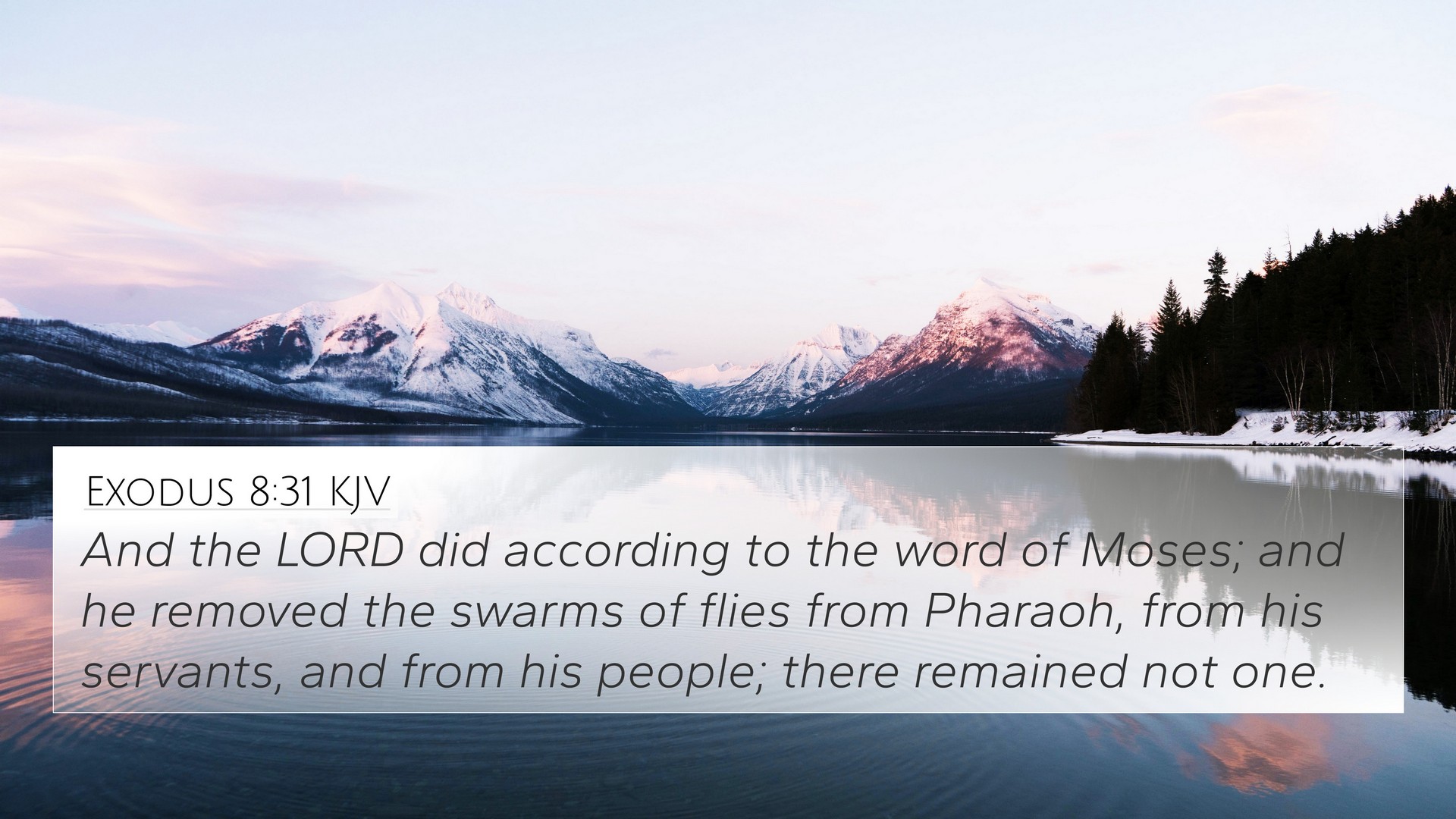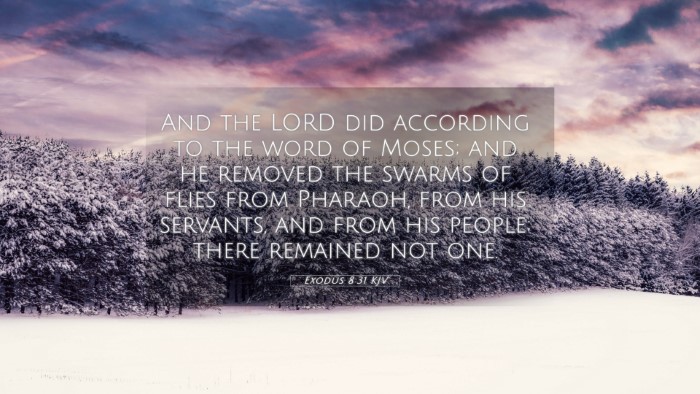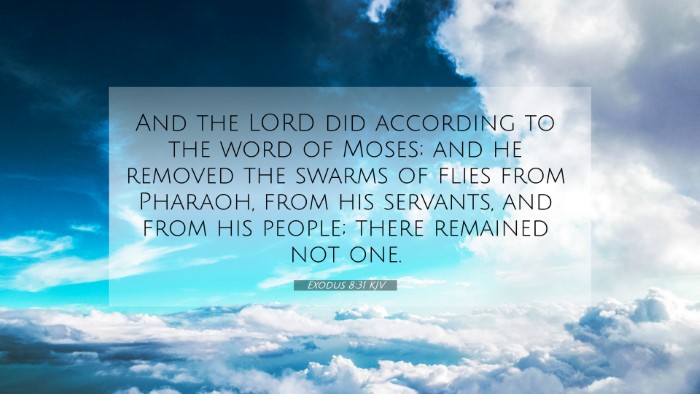Understanding Exodus 8:31
Exodus 8:31 states, "And the LORD did according to the word of Moses; and he removed the swarms of flies from Pharaoh, from his servants, and from his people; there remained not one." This verse can be understood as a significant demonstration of God's power and the impact of Moses' intercession on behalf of the Israelites. The removal of the flies is not just a physical relief for the Egyptians but a sign pointing towards divine authority and mercy.
Key Themes:
- The sovereignty of God
- The power of prayer and intercession
- The relationship between God and His messengers
- Divine judgment and mercy
Commentary Insights
Matthew Henry's Commentary
According to Matthew Henry, this passage emphasizes God’s control over nature and pestilence. The removal of the flies serves to highlight that God listens to Moses’ requests and acts upon them. Henry denotes that this demonstrates God’s willingness to alleviate misery when petitioned through prayer. It underscores the idea of God’s mercy prevailing over judgment at the request of His servant, indicating the effectiveness of Moses’ leadership and the power of faithful intercession.
Albert Barnes' Commentary
Albert Barnes draws attention to the importance of the swarms of flies as a symbol of the plagues that plagued Egypt. He suggests that the act of removing the flies represented not only relief for the Egyptians but also a powerful testament to God’s authority. Barnes notes that while the Egyptians were suffering, God's ability to remove these pests at Moses' word signifies both judgment and mercy, leading to a pivotal point in the narrative of Exodus.
Adam Clarke's Commentary
Adam Clarke elaborates further by connecting the removal of flies to the larger narrative of Pharaoh’s hardened heart. He explains that this event serves as a precursor to further plagues and a deeper understanding of divine patience. Clarke points out that the healing of the land is met with Pharaoh’s continued resistance, further portraying the struggle between divine authority and human obstinance. Clarke’s view reminds readers that while God shows mercy, there are consequences for unyielding hearts.
Bible Verse Cross References
Exodus 8:31 connects with various other scriptures that enhance its meaning:
- Exodus 5:1-2: The initial challenge Moses faced with Pharaoh emphasizes God’s authority.
- Exodus 8:11: Details the severity of the plague as a backdrop to God’s mercy in removal.
- Exodus 10:21-22: Pertains to further plagues, highlighting the ongoing tension between Moses and Pharaoh.
- Exodus 12:30-31: The ultimate act of deliverance shows a conclusion to the plagues, leading to significant liberation.
- Psalm 78:45: Reflects on God's ability to send flies as divine judgment.
- Psalm 105:31: Alludes to God's power over nature, specifically in connection to Egypt.
- 1 Timothy 2:1-2: Highlights the power of intercessory prayer, similar to Moses' role.
Thematic Bible Verse Connections
The verse finds thematic connections throughout the Bible, showcasing the importance of understanding cross-references. This method allows for a deeper grasp of scripture and God’s overarching narrative:
- Inter-Biblical Dialogue: Understanding the linkages between Old Testament plagues and New Testament teachings on mercy.
- How to Identify Cross-References: Utilizing tools like concordances can illuminate these connections.
- Comparative Studies: Examining the effects of God’s judgment in tandem with mercy throughout scripture.
Conclusion
In conclusion, Exodus 8:31 serves as a crucial verse that encompasses key biblical themes such as divine authority, intercessory prayer, and the righteousness of God's mercy. Engaging with various commentaries and cross-references enriches the understanding of this passage, offering insights into the enduring nature of God’s relationship with His people and serving as an example for believers in their own endeavors of prayer and communication with the divine.


